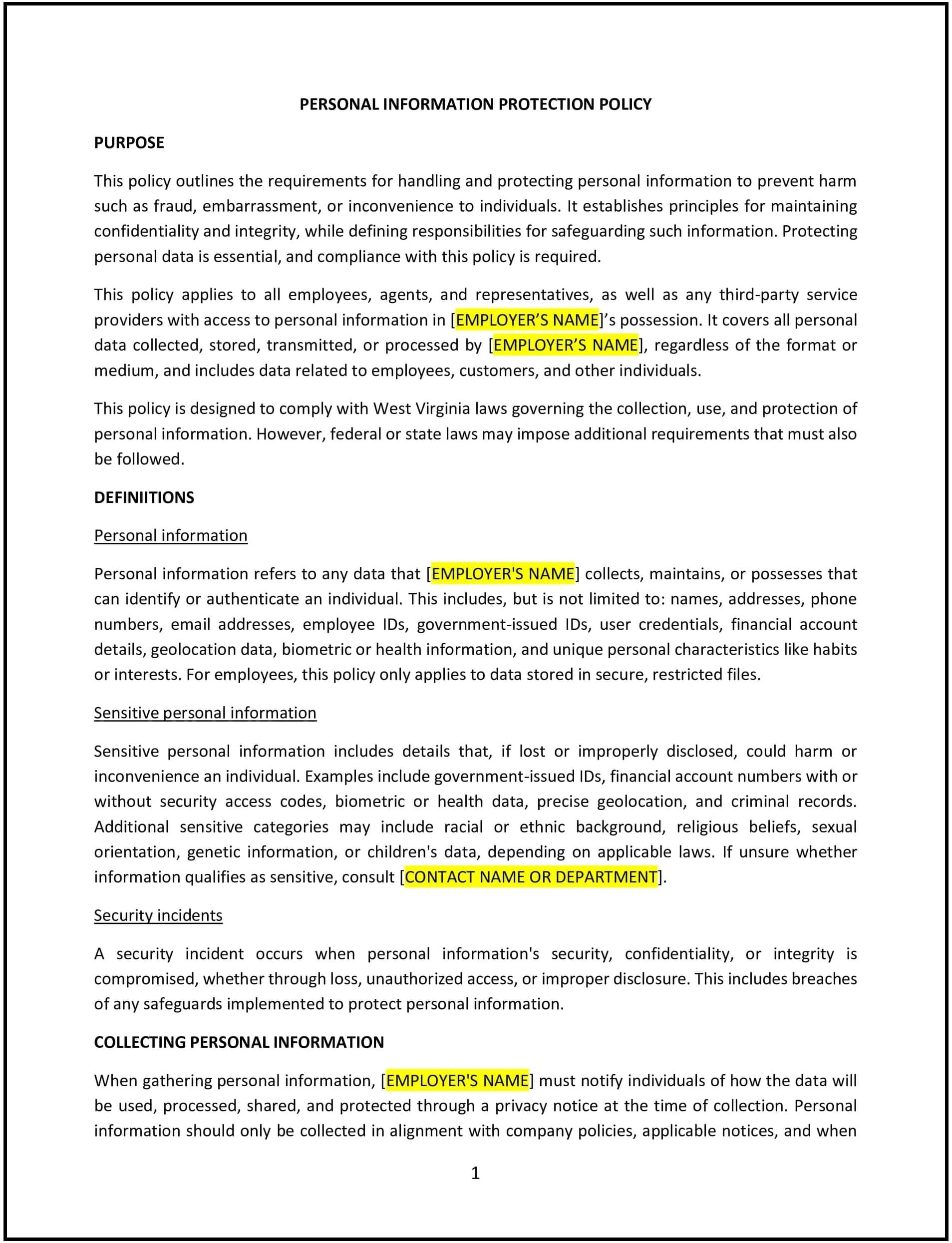Personal information protection policy (West Virginia): Free template
Got contracts to review? While you're here for policies, let Cobrief make contract review effortless—start your free review now.

Customize this template for free
Personal information protection policy (West Virginia)
In West Virginia, a personal information protection policy establishes guidelines for safeguarding sensitive employee, customer, and company data from unauthorized access, breaches, or misuse. This policy promotes compliance with state and federal privacy laws while promoting transparency and accountability in data management practices.
The policy outlines data protection measures, access controls, and procedures for responding to data breaches to ensure secure handling of personal information.
How to use this personal information protection policy (West Virginia)
- Define personal information: Specify the types of data covered by the policy, such as Social Security numbers, financial records, health information, and contact details.
- Establish data protection measures: Detail technical and administrative safeguards, including encryption, password protection, and secure storage practices.
- Outline access controls: Specify who can access personal information and under what circumstances, ensuring that access is granted on a need-to-know basis.
- Provide breach response procedures: Include steps for identifying, reporting, and mitigating data breaches, as well as notifying affected individuals if required by law.
- Support compliance: Align the policy with West Virginia privacy laws, the Gramm-Leach-Bliley Act (GLBA), and other applicable federal regulations.
Benefits of using a personal information protection policy (West Virginia)
- Protects sensitive data: Reduces the risk of unauthorized access or breaches by implementing strong data protection measures.
- Supports compliance: Supports adherence to West Virginia and federal privacy laws, minimizing legal risks and penalties.
- Enhances transparency: Provides employees and customers with clear guidelines on how their personal information is handled and protected.
- Promotes accountability: Establishes roles and responsibilities for managing and safeguarding personal information within the organization.
- Builds trust: Demonstrates the organization’s commitment to data security, fostering confidence among employees and stakeholders.
Tips for using a personal information protection policy (West Virginia)
- Train employees: Provide regular training on data protection practices, including recognizing phishing attempts and using secure systems.
- Monitor compliance: Use monitoring tools and audits to ensure adherence to the policy and identify potential vulnerabilities.
- Encourage reporting: Establish a process for employees to report suspected data breaches or security concerns promptly.
- Regularly update systems: Ensure all software and systems are kept up to date to protect against evolving cyber threats.
- Review periodically: Update the policy to reflect changes in West Virginia laws, federal regulations, or technological advancements.